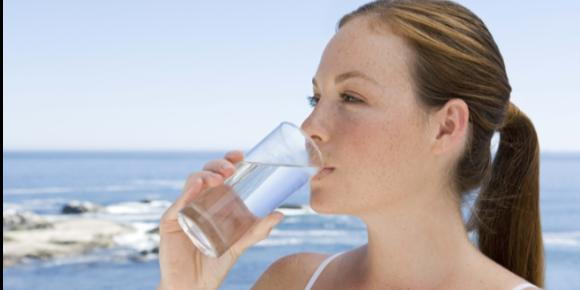Your Body's silent cry for Water

- posted: Jul. 08, 2024
No, thank you. I'm not thirsty." But regardless, it's essential to drink water consistently, even before you feel the need. Water plays a critical role in maintaining your overall health. By staying hydrated, you can prevent dehydration, a condition that can lead to cognitive fog, mood swings, muscle cramping, dizziness, overheating, constipation, and kidney stones.
Plain water, without any added colors or marketing slogans, is a fundamental necessity throughout your life. Here's why:
- Regulates body temperature.
- Lubricates and cushions joints.
- Protects sensitive tissues like the spinal cord.
- Eliminates waste through urination, perspiration, and bowel movements.
- Maintains the balance of bodily fluids, which are crucial for digestion, absorption, circulation, saliva production, and nutrient transportation. After all, about 60% of your body is composed of water.
Why the emphasis on constant hydration? While sweating indicates visible fluid loss, the body also loses water through breathing, skin evaporation, urine, and bowel movements. Simply put, if your fluid intake doesn't match your output, dehydration becomes a risk. Remember, your water needs may increase in hot climates, during physical activity, fever, diarrhea, or vomiting episodes.
Tips to Increase Water Intake:
- Carry a refillable water bottle and sip throughout the day.
- Choose water over sugary beverages and soda pop.
- Opt for water when dining out to save money and calories.
- Serve water with meals.
- Add a slice of lime or lemon to enhance the taste or natural electrolyte powder.
Recommended Daily Water Intake:
Approximately 20% of your water needs come from food, especially fruits and vegetables with high water content. As a general guideline:
- Women should aim for about 11 cups (88 ounces) of fluids per day.
- Men should aim for about 15 cups (120 ounces) of fluids per day.
Individual requirements may vary based on age, athletic activity, geographic climate and body chemistry. Adequate fluid intake is indicated by infrequent thirst and light-colored urine. While water should be your primary choice, there are other options that can complement a healthy diet. Remember, staying hydrated is vital for your well-being. Thanks for reading, Dr. Joe


